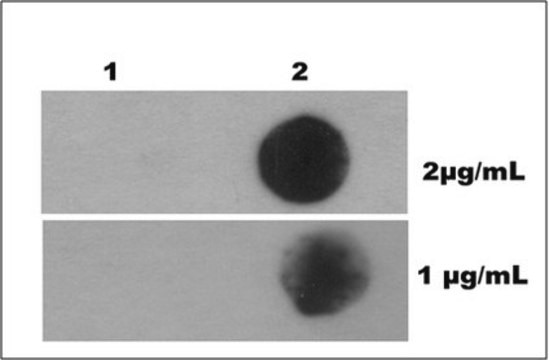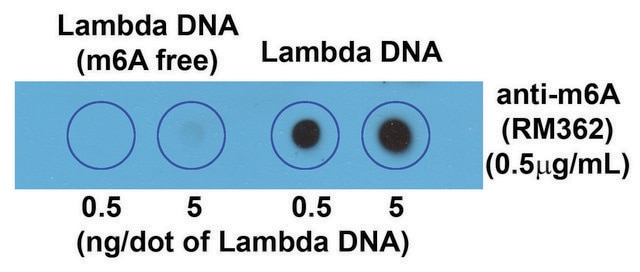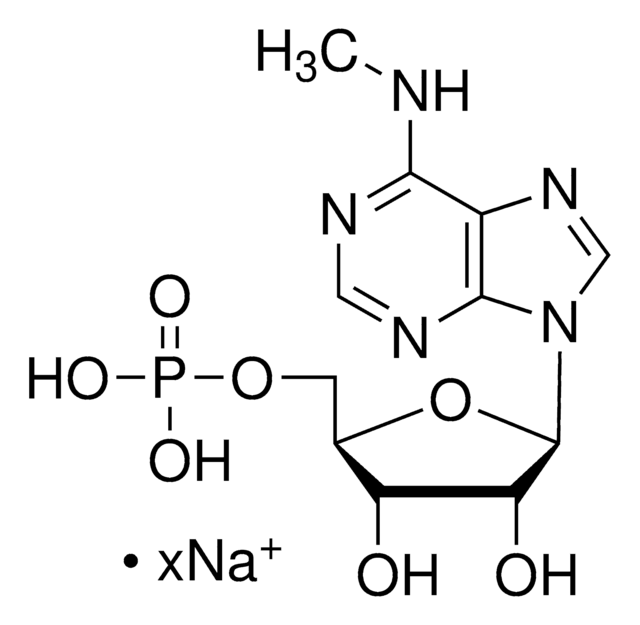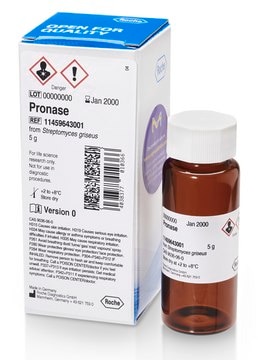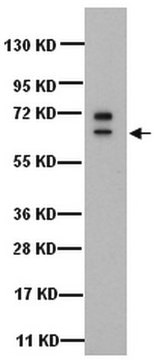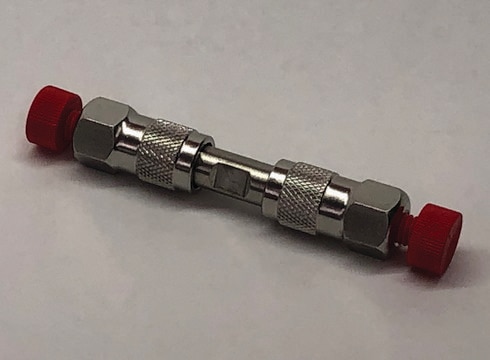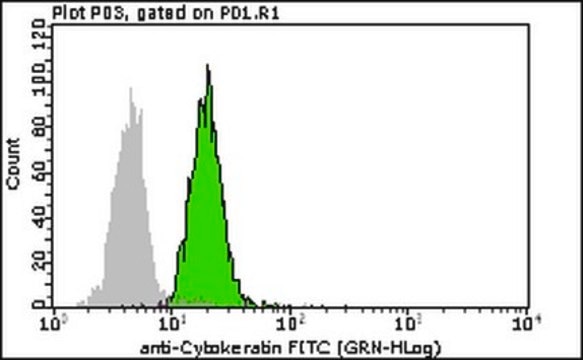SAB5701383
Anti-N6-methyladenosine / m6A antibody produced in rabbit
Sign Into View Organizational & Contract Pricing
All Photos(3)
About This Item
UNSPSC Code:
12352203
NACRES:
NA.41
Recommended Products
biological source
rabbit
Quality Level
antibody product type
primary antibodies
clone
monoclonal
form
liquid
species reactivity
rat, human, mouse
concentration
1 mg/mL
technique(s)
immunohistochemistry: 1:50-1:200
western blot: 1:500-1:2000
shipped in
wet ice
storage temp.
−20°C
target post-translational modification
unmodified
Related Categories
General description
Discovered in the 1970s, m6A is the most prevalent internal modification in polyadenylated mRNAs and long non-coding RNAs (lncRNAs) in higher eukaryotes. m6A is widely conserved among eukaryotic species that range from yeast, plants, flies to mammals, as well as among viral RNAs with a nuclear phase. The m6A-based modification is associated with a well-defined RNA motif, RRACH (R: A/G, H: A/C/U). As a representative of the epitranscriptome, m6A mRNA modifications participate in many vital activities in the cell, including stem cell self-renewal and differentiation, mRNA transcription, alternative splicing, nuclear export, translation, degradation, and microRNA processing. These processes determine the expression or inactivation of specific genes, which is vital for growth and development.(PMID: 30416848; PMID: 24662220; PMID: 30429466)
Immunogen
Chemical compounds corresponding to N6-methyladenosine / m6A.
Physical form
Buffer: PBS with 0.02% sodium azide,0.05% BSA,50% glycerol,pH7.3.
Not finding the right product?
Try our Product Selector Tool.
wgk_germany
WGK 1
flash_point_f
Not applicable
flash_point_c
Not applicable
Certificates of Analysis (COA)
Search for Certificates of Analysis (COA) by entering the products Lot/Batch Number. Lot and Batch Numbers can be found on a product’s label following the words ‘Lot’ or ‘Batch’.
Already Own This Product?
Find documentation for the products that you have recently purchased in the Document Library.
Our team of scientists has experience in all areas of research including Life Science, Material Science, Chemical Synthesis, Chromatography, Analytical and many others.
Contact Technical Service